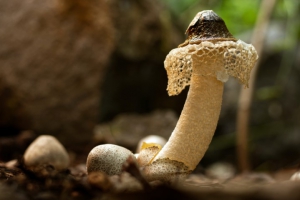And then it's summer!
Europe is now at the time of the year summer will burst out. And every year the same growing problems occur at this time, getting worse and worse every year.
Summers seem to get hotter and it is time to adapt before real growing problems are there. There are a number of things growers can do but of course a good cooling system is a must. Well calculated, fitting the circumstances of your own country. But even the best cooling system will not cover everything. If we take the summer temperature last year in Holland at 42° nobody has a cooling system which will handle these extreme temperatures in our country.
If at the same moment also the relative humidity is high it is not only cooling but also the heating that counts. And that brings me to the first mistake many growers make. In summer switch of the heating system. Its hot enough outside, I do not need heating. Wrong!!!
De-humidification only works if the cooling can work in combination with a bit of heating. So, by switching of the heating the system can make the air dryer anymore. And you need dry air to cool a hot room. The easiest way to cool a growing room is to give water to the casing soil. The best way is to give many small quantities up to 2 litres. That can be evaporated again. Spread the watering over 24 hours. The dry air coming into the room will take care of the evaporation and will help cooling the growing room. Keep the casing soil wet but the floor as dry as possible. That is why I do not close the room completely if the outside is hot but dry. It is possible to use air which is much higher than the compost temperature as long as the incoming air is dryer than the air in the room.
In the mollier diagram one can calculate how much fresh air is necessary to absorb the evaporated water in the room. And for that cooling by evaporation you only need a few litres of water extra. No extravagant quantities as some growers tend to do. An extra help will be some mobile coolers on the farm. They can be placed into the room just before the heat surge is starting. The price of such a mobile cooler is a lot lower than the costs of losing a room.But in the end, judging a room is important. If compost is active and the C/N ration is relatively high one can expect activity. It is of outmost importance that cooling starts before the surge starts. Once a compost is going up it is hard or impossible to stop it.
Fungi that decompose plant matter may keep ecosystems healthy, especially after drought
The red, orange, and spotted mushrooms that sprout up after it rains are doing more than adding color to the landscape. The fungi that produce them could be keeping the natural world productive and stable, according to a new study. Indeed, they may be critical to the health of Earth’s ecosystems, says Matthias Rillig, a soil ecologist at the Free University Berlin who was not involved with the work.
Please read the full article here.
Author of article: Elizabeth Pennisi
Source: Science
A lot of studies and reports are writing about the beneficial facts of mushrooms and we like to see the increasing attention on our beloved mushroom. A lot of innovations are seen where companies are using fungi to achieve a sustainable future, for example in the clothing, construction, furniture and health industry. The recent Pandemic has even accelerated the importance of healthy food and a future without plastic. This article writes about the future of mushrooms and the impact on immunity for people and the planet.
This report reveals the top 5 ways mushrooms will play a role in protecting our immunity in 2026:
- Human and immunity: from the ancient use of mushrooms as medicines to immune-boosting everyday mushrooms converting light into vitamin D, an essential factor in our immune health.
- Food for immunity: how we will be ingesting mushroom’s vital nutrients, from supplements and burgers to drinks. Low in calories, high in nutritional value and considered to be brain boosters.
- Vitamin D: how vitamin D enhances our adaptive immunity and function, and a three-year study currently underway to explore the health benefits of Vitamin D in mushrooms.
- Planetary partners: vertically farmed in forgotten urban spaces, to plastic munching, how mushrooms are leading the smart farming revolution, secretly saving the health of our planet.
- Furniture to Martian mycelium: how mushrooms are being used to make furniture, coffins and to create habitats on lunar missions; mycelium - the compostable material that knows no bounds.
Please read the full article here.
Source: Weekly News
Climate control
A good climate control is of course vital for every mushroom grower even more if you want to stand out with the quality of the mushrooms. One of the most asked question I get as consultant is: How can we get better quality and how can we keep the quality of the mushrooms good until the end of the flush? Now, of course the quality at the end of the flushes will always be less than at the start, no illusions there. But improvements are always possible and most of that you can get from an ideal climate.
Before we had more advanced climate installations with more options, we always controlled the rooms on Air temperature, Relative humidity and CO2. However, with the new systems coming on the market there is a lot more to learn than we think and controlling rooms, especially in harvest stage, on moisture deficit, inlet moisture control and even measuring systems for evaporation are used.
To understand the difference between all the systems you need to know exactly what the Mollier Diagram stands for and if you manage to run the system well you will see advantages, especially in quality of the mushrooms. The Mollier Diagram is crucial in mushroom growing and climate computers make the changes in the room based on that Diagram with the Absolute humidity (AH) as the biggest factor. Let’s me explain a little bit more about of those controls, the moisture deficit.
As we are changing air temperatures in the flushes you will see in the Mollier Diagram that that will create differences in evaporation as we change the temperature but leave the RH the same, with other words, we change the AH. By controlling on moisture deficit we will maintain a constant evaporation, what will benefit the quality of the mushrooms, no matter what the temperature differences are. The computer will calculate the right RH for the current air temperature, to keep the same evaporation in the growing room.
Moisture deficit is the difference between the current absolute humidity in the room and the maximum possible absolute humidity at the same air temperature. Once this value is constant the evaporation capacity of the air is also constant.
To use this in a practical situation of course first of all you need a climate control computer that supports the moisture deficit system and change it from RH to moisture deficit control, in the computer that will be named as Absolut humidity control. Ideally this is linked with humidity control of the inlet air to get the best benefit. The mushrooms will have a constant evaporation and that will benefit the quality as changes in evaporation will disturb their growth. The mushrooms will get less water stems and go softer in a later stage what would give an extra picking days benefiting the yield as well as quality.
I recommend to change the computer 1 day before you start harvesting the flush from RH control to moisture deficit control. When you changed the control, set the AH in the computer so that the RH is at the same level as you normally run it in the flush. So if you normally run the flush on 17.5 degrees and 89% RH, keep the air temperature the same and set the AH so that he calculates the 89% RH as set point. Keep 0.2 difference between minimum and maximum AH. From that moment forward you let the computer calculate the right RH and change the air temperatures as you normally do, until the end of the flush. After the flush put the system back to RH control.
The only way to find out is try other controls to improve quality. Many option are out there and based on results on other farms worth trying. If you start and are seeing any improvement? Learn more and keep doing trials, good luck.
Erik de Groot
This email address is being protected from spambots. You need JavaScript enabled to view it.
And then it's summer!
Europe is now at the time of the year summer will burst out. And every year the same growing problems occur at this time, getting worse and worse every year. Summers seem to get hotter and it is time to adapt before real growing problems are there. There are a number of things growers can do but of course a good cooling system is a must. Well calculated, fitting the circumstances of your own country. But even the best cooling system will not cover everything. If we take the summer temperature last year in Holland at 42° nobody has a cooling system which will handle these extreme temperatures in our country.
If at the same moment also the relative humidity is high it is not only cooling but also the heating that counts. And that brings me to the first mistake many growers make. In summer switch of the heating system. Its hot enough outside, I do not need heating. Wrong!!!
De-humidification only works if the cooling can work in combination with a bit of heating. So, by switching of the heating the system can make the air dryer anymore. And you need dry air to cool a hot room. The easiest way to cool a growing room is to give water to the casing soil. The best way is to give many small quantities up to 2 litres. That can be evaporated again. Spread the watering over 24 hours. The dry air coming into the room will take care of the evaporation and will help cooling the growing room. Keep the casing soil wet but the floor as dry as possible. That is why I do not close the room completely if the outside is hot but dry. It is possible to use air which is much higher than the compost temperature as long as the incoming air is dryer than the air in the room.
In the mollier diagram one can calculate how much fresh air is necessary to absorb the evaporated water in the room. And for that cooling by evaporation you only need a few litres of water extra. No extravagant quantities as some growers tend to do. An extra help will be some mobile coolers on the farm. They can be placed into the room just before the heat surge is starting. The price of such a mobile cooler is a lot lower than the costs of losing a room.But in the end, judging a room is important. If compost is active and the C/N ration is relatively high one can expect activity. It is of outmost importance that cooling starts before the surge starts. Once a compost is going up it is hard or impossible to stop it.
























